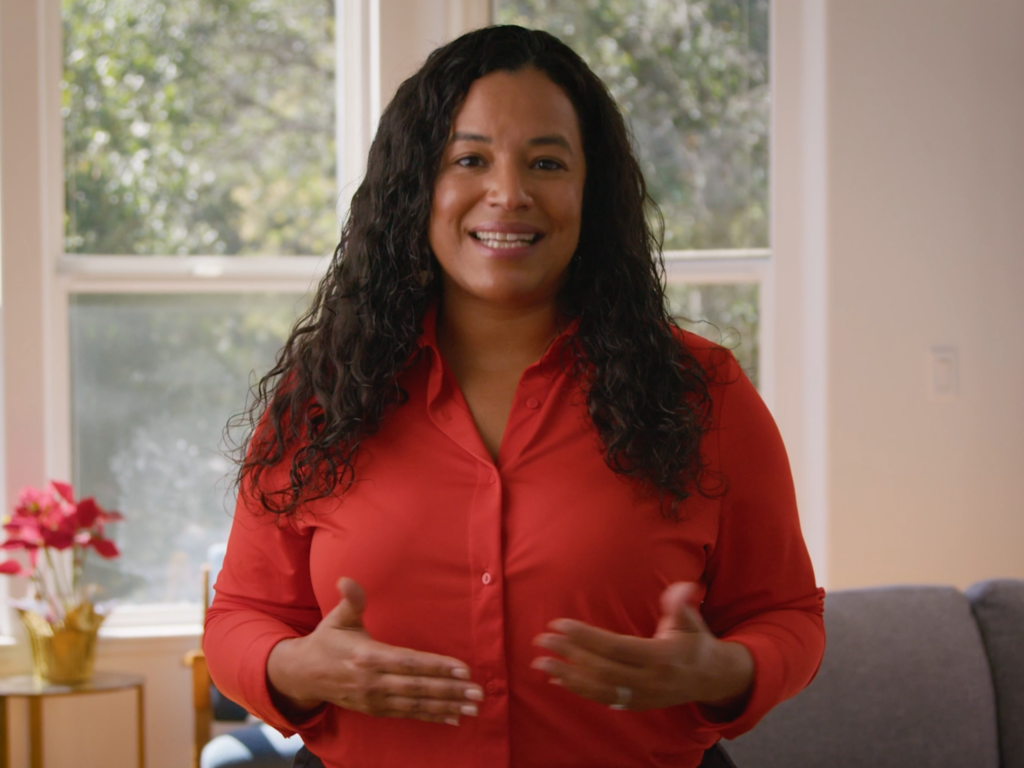These strong-voiced women are authors, reserachers, mentors and activists—the kind of women who will shape America’s new century.
Tiffany Shlain, 30
When she created the “Webby” awards in 1996, Shlain launched the event of the digerati social season. Each year celebrity judges evaluate sites; winners can count on digital fame and fortune. “The nominees are heroes of intellect, computing and creativity, thrust from the fringe into the spotlight,” says Shlain. “For consumers overwhelmed by the Internet, we shine a light on the very best for them.” She wants the Webbys to reflect Internet pop culture, just like the Oscars. But Hollywood could learn from the Webheads: Shlain limits acceptance speeches to five words or less.
Jayshree Ullal, 39
As vice president and general manager at Cisco Systems, Ullal ran a $5 billion division of the Internet networking giant when she was only 36. But the recent death of her grandfather prompted her to step off the fast track at Cisco. She’s now trying “an experiment in balance.” In addition to spending more time with her family, Ullal coaches women- and minority-run tech start-ups: “I give them confidence.”
Kim Smith, 33
She calls herself a “social entrepreneur.” As president of the New Schools Venture Fund, Smith raises money from New Economy business leaders and “invests” the philanthropic funds in public-education experiments like charter schools and literacy programs. And she takes pride in her role as a liaison between two very different worlds. “Educators and business people don’t speak the same language,” she says. “I’m bilingual.”
Dr. Carolyn Kaelin, 39
Kaelin may look like she just got out of med school, but her 10-page resume attests to her position as a leader in breast-cancer care. As a surgeon and Harvard Medical School faculty member, her research focuses on patient quality of life following breast-cancer treatment. How dedicated is she? She attended a residency-award dinner when she was pregnant and in labor. The contractions were 10 minutes apart when she received an award for being the best chief resident that year. “The speech,” says Kaelin, “was short.”
Thelma Golden, 33
Deputy director of the Studio Museum in Harlem, Golden is one of the nation’s most-watched museum curators. She made her name through 10 years at the Whitney Museum, particularly with “Black Male: Representations of Masculinity in Contemporary Art,” a controversial 1994 show that drew huge crowds. Her ultimate goal: to direct a major American museum.
Michele Serros, 34
The Los Angeles-based author and poet writes about growing up in a working-class Mexican-American family, and her tales of never quite fitting in are both poignant and hilarious. In 1998 she published her first book of poetry and short stories, “Chicana Falsa,” while she was still a college student. Last year her second short-story collection, “How to Be a Chicana Role Model,” quickly climbed the best-seller lists-and became required reading in many classrooms. “A lot of people have gone through the things I write about,” she says. “I just happen to be Chicana.”
Shirley Sagawa, 39
When Sagawa got the call that the Clinton administration wanted her to work at the White House, her son Jackson was 1 month old. “I didn’t have any business clothes that fit,” she says. Eight years later, as deputy assistant to President Clinton and deputy chief of staff to Hillary Clinton, Sagawa had become a key player in national child-care policy, community service and philanthropy. Next up: she plans to start a consulting firm counseling nonprofits and helping companies create “venture philanthropy” programs.
Michele Forman, 29
As an artsy undergrad at Harvard, Forman took a screenwriting course from Spike Lee. When she graduated in 1993, the Birmingham, Ala., native went to work for Lee, eventually helping produce “Four Little Girls,” a film about the lives of people affected by the 1963 bombing of Birmingham’s Sixteenth Street Baptist Church. In 1997 she moved back to Birmingham, where she continues to produce documentaries. “I really love this city,” says Forman. “So many dramas have been acted out in the streets here.”
Annelise Barron, 32
The Northwestern University chemical engineering professor’s genetic and cancer research has made her a scientist to watch. The daughter of a Bolivian immigrant and one of 10 children, she’s now developing technology to rapidly screen for genetic mutations (first target: breast cancer). “Even if it ends up saving just 10 people over the next five years, that’s 10 people,” Barron says.
Ronit Bezalel, 31
Bezalel’s documentary, “Voices of Cabrini,” began as her master’s thesis at Columbia College Chicago, and has become a touchstone in the debate over public housing, particularly the falling high-rises and relocation of residents. Bolstered by a $20,000 grant, Bezalel began a “community tour” to bring the film to both rich and poor audiences. “It’s a chance for them to ask questions about public housing, and kind of demystify it,” says Bezalel. Ahead: more collaborations with her former documentary instructor, Judy Hoffman.
Mary Hallan FioRito, 35
FioRito started working at the Archdiocese of Chicago 13 years ago while attending law school, and her appointment as its first woman vice chancellor in February 1998 was a milestone. She headed the archdiocese’s pro-life office for six years, and now pregnant with her first child (due in June), she feels even more strongly about her pro-life beliefs. “My own pregnancy,” says FioRito, “has been a tremendous affirmation of what I’m doing.”
Mary Pattillo-McCoy, 30
Pattillo-McCoy is barely out of her 20s, but she already has an award-winning book under her belt. Last year the Northwestern University sociology and African-American studies professor published “Black Picket Fences,” a look at a black middle-class neighborhood similar to the one where she grew up. Her work at NU focuses on the black-white test-score gap and the “recency” of the black middle class. “You have a disparity in the kinds of places people grew up,” she says. “Even though they’re all now middle class, it takes a couple of generations to reach any kind of parity.”
Amber Khan, 29
Born in Pakistan but raised in the United States, Khan’s religious activism began in childhood. “Growing up, my parents would try to create a Muslim community wherever we went-by looking up surnames in the phone book,” says Khan. Now, as director of communications for the Interfaith Alliance, she’s an activist in her own right, promoting the constructive role of religion in public life and battling groups that exploit religious differences to gain political power. She knows firsthand how painful prejudice can be. The mosque she attended in Illinois was burned down in a hate crime. Even so, she’s optimistic about her faith and her future. Her husband is not Muslim, but the couple is committed to raising their son in her faith. “I want him to feel as American as I do,” says Khan, “that he is entitled to every promise this country holds.”
Christine Chen, 31
Leaders in the Asian-American community are eyeing Chen as a future political figure. Right now she’s director of programs for the Organization of Chinese Americans, taking on the massive task of coordinating its Asian Pacific American Voter Registration Campaign. She also runs a leadership program for Asian-American college students and tracks legislation that affects the community.
Christy Haubegger, 32
Four years after launching Latina magazine in a cramped, windowless office, Haubegger has watched her circulation and advertising numbers soar. But she’s not stopping there. Flush with a recent $20 million cash infusion, her Latina Media Ventures has plans to roll out new online, broadcast and publishing ventures in coming months. “We’re at the dawn of the Latina century,” says Haubegger.
© 2001 Newsweek, Inc. All Rights Reserved.


